By: Lidija Grozdanic | August - 29 - 2011
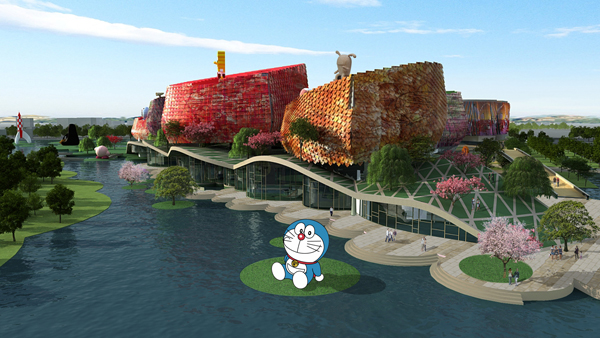
Architects at EMBT did an unpopular thing for their Comic and Animation Museum Design: they addressed the issue of context. The idea was to engage the surroundings in a visual and associative narrative, delivering a design that joins the Confucian geometry to a mystical appreciation of nature. The intense relationship between object and landscape and subtle referencing to tradition aimed to transform the site into, what the architects called-“a kind of magic land that will enhance the impossible and dare the mind to reach unexpected levels of imagination”. The punch-line iconicity and visual overstimulation were replaced with multilayered experiences of the specific and the imaginative.
The basket-like forms of the museum resonate with images of the Chinese vernacular. Their alignment suggests a processional navigation through the exhibition space, a principle immanent to the Taoist idea of “path”, ultimately embodied in the Chinese traditional garden design. The distinguishable imagery of narrow paths and networks of bridges amid lush green ambiance is reinterpreted, while still essentially rooted in the idea of the Chinese garden as “a cosmic diagram, revealing a profound and ancient view of the world and of man’s place in it”.
Starting from the ramp, the visitors are taken down to a “sub-aquatic underworld”, from where they are able to experience underwater views of the lake. Large screens projecting animation from comics around the world dominate a double height space, going from underneath a cluster of waterlilies, up to the floating baskets. The roof, as artificial landscape, integrates “the bodies” of the Museum and maintains the fluidity of movement. The floating baskets are tactile and organic. Through permeability of the assemblage visitors are presented with the opportunity to directly experience the fine weaving of the fabric. Harmonizing their own rhythms to the pulse of natural surroundings of the site, the colorful wicker structures create an impression of fragility, which further humanizes the design.
Accentuating the textural quality of the museum aims to widen the perceptual field beyond dominant ocularcentric paradigm of contemporary architecture. The multi-sensory features of the design integrate the visitor with space, leaving him with a purely spectatorial role only while observing the exhibition. The imaginary worlds of comics and animation are transposed into the realm of architecture, encouraging visitors not only to consume, but to participate in their own experience of built space.
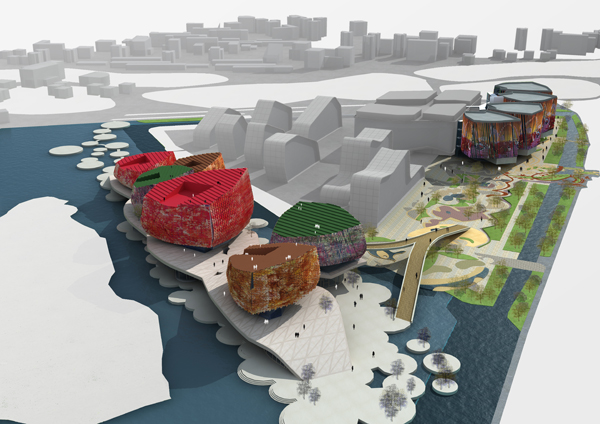
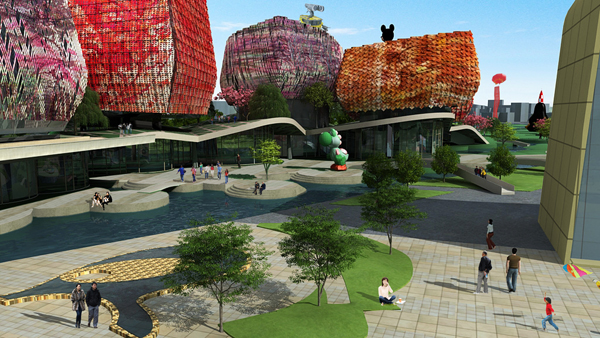


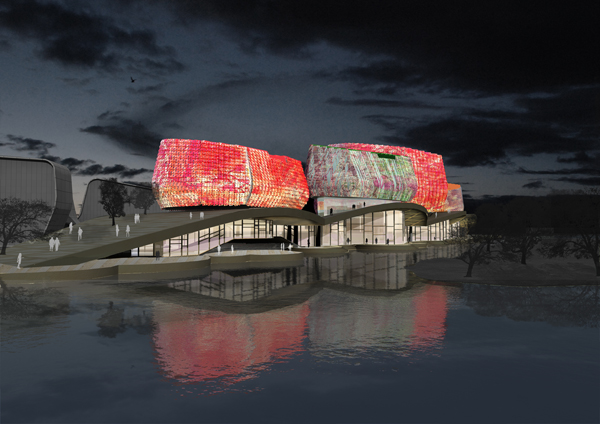
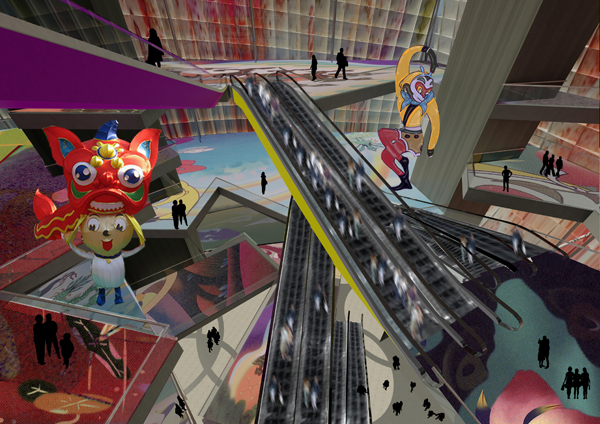
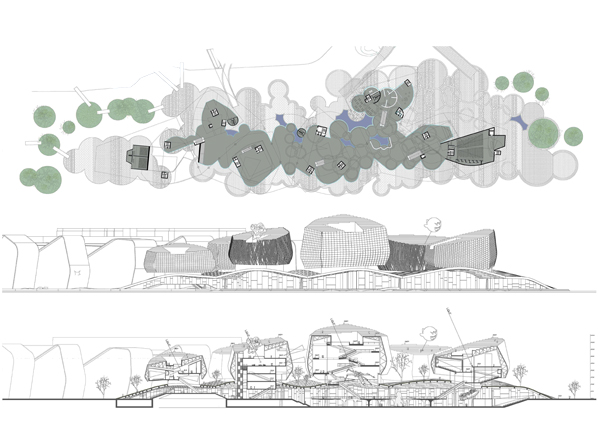
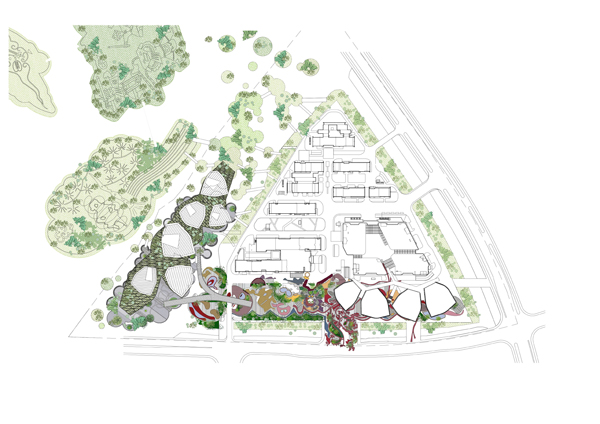
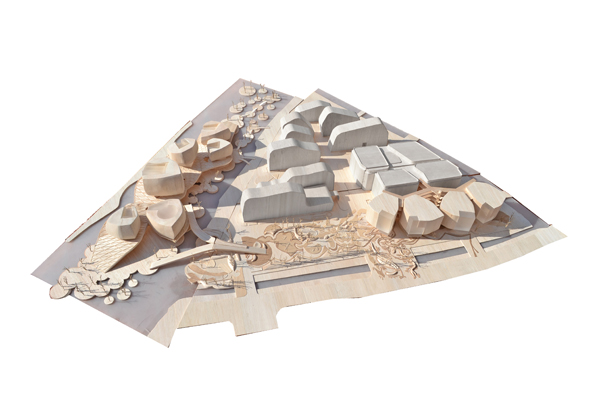

No comments:
Post a Comment